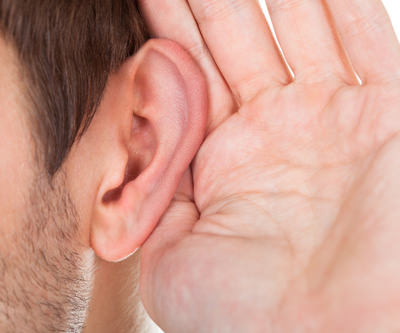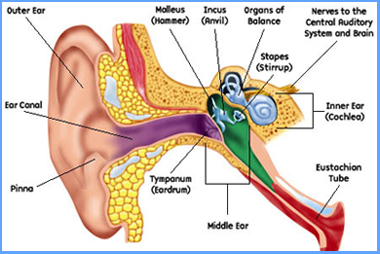How do we hear?
Sources of Sound
When we “hear” sound, our ears are picking up air movement from either a vibrating object (like a violin string) or a rushing stream of air (like a flute). For sound to reach our ears, it must come through a medium that “carries” vibrations. The medium that we are most familiar with is air. Sound vibrations can also travel through other mediums as well, such as water or steel. Without a medium to travel through, there is no sound. For example, in a vacuum (absence of air) it would be impossible to hear a bell ringing.
What Are the Effects of Hearing Loss?
Why Are Loud Sounds, Loud?
Loudness is an impression we get about a sound’s strength through changes in pressure that we feel in our ears. The stronger the pressure, the louder we perceive the sound to be. When we talk about loudness, we use the term decibel (dB).
Why is Noise, Noise?
Our ears can distinguish between regular and irregular vibrations. When regular vibrations strike the ear, we recognize them as music or speech. On the other hand, if irregular vibrations strike the ear we may describe them as hissing, squeaking, rustling, creaking, rattling… what we often call background noise.

How does the ear work?
What Causes Hearing Loss?
There are many reasons for hearing loss. All of these can rob of us our ability to hear and understand the way we used to.
- Middle-ear infection
- Illness or birth defects
- Reaction to oto-toxic medications
- Natural effects of aging
- Heredity
- Accidents
- Exposure to noise
Sensitivity of the Ear
The range of normal human hearing is so sensitive we can detect the whisper of a dry leaf in the tree overhead (20 dB), yet so flexible we can tolerate the sound of a jet plane taking off (120 dB). At any age our hearing sensitivity can begin to change until we realize that it’s just not the same as it used to be. Sometimes soft sounds become too soft for us to hear, and loud sounds are too loud for us to tolerate.
Adaptation
Measurements have shown that when our ears are exposed to louder continuous sound, their sensitivity decreases. When the sound finally stops, our hearing sensitivity will slowly return. This phenomenon is called adaptation.
Fatigue
When subjected to loud sounds for long periods of time, our ears lose some sensitivity to sound. They become tired or fatigued. The longer the exposure to the sound, the longer it takes our ears to recover.
Find your perfect fit for hearing devices and start hearing the world around you again!
Contact us today to schedule a no-obligation hearing evaluation with our Audiologist Matthew Favinger. At your appointment, Matthew will assess your hearing and help you find the right hearing solution for you.
Contact Us